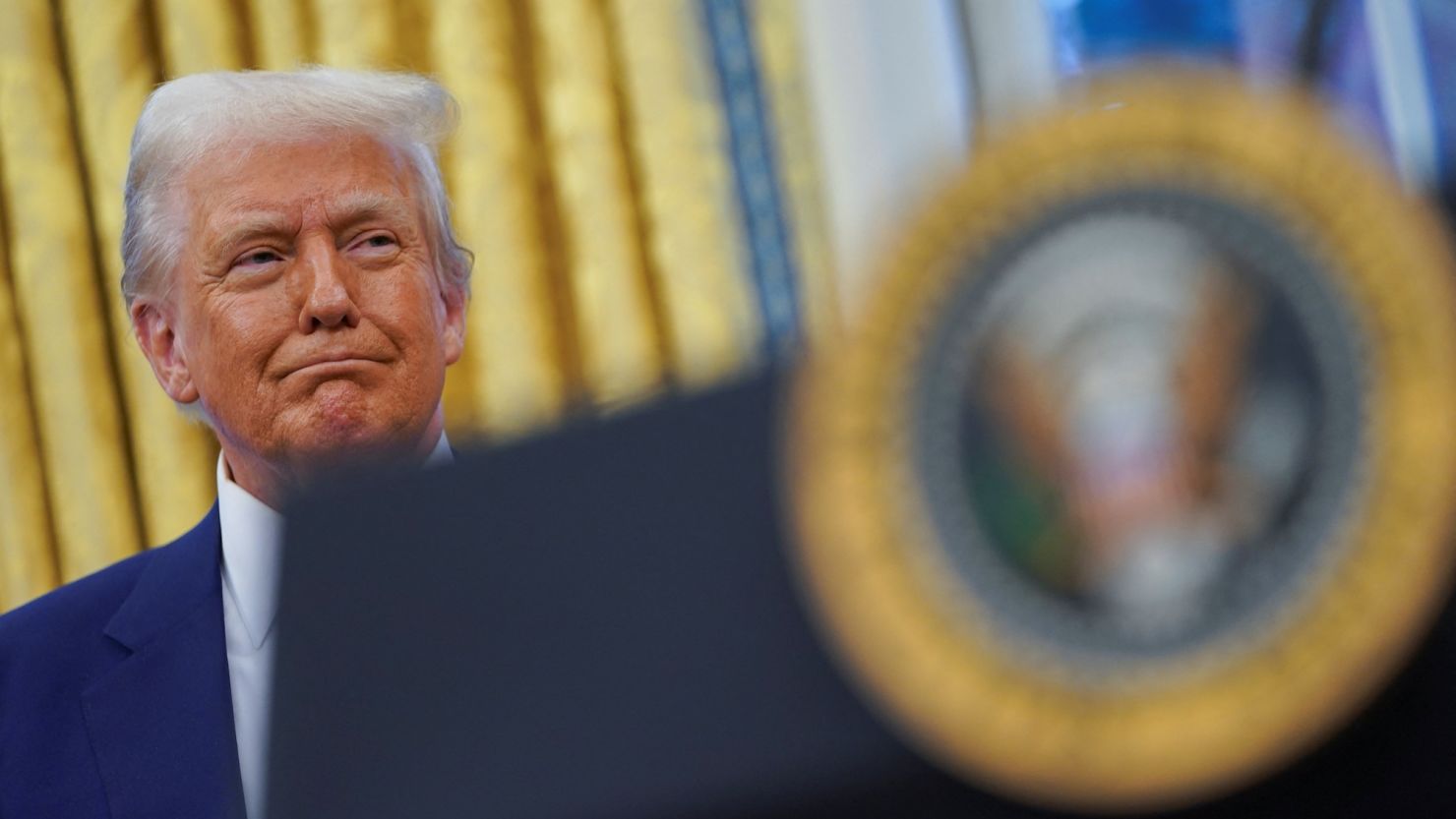The Office of Personnel Management (OPM) said Thursday that President Trump signed an executive order limiting numerous agency employees from unionizing and instructing the government to stop engaging in any collective bargaining.
The OPM memo references an order from Trump that has yet to be publicly posted, but a fact sheet from the White House claims that the Civil Service Reform Act that allows government workers to unionize “enables hostile Federal unions to obstruct agency management.”
“President Trump is taking action to ensure that agencies vital to national security can execute their missions without delay and protect the American people,” the fact sheet states.
The order targets agencies it says have a national security mission but many of the departments don’t have a strict national security connection.
In addition to all agencies with the Department of Homeland Security, the Department of Defense (DOD), the Department of State, and the Department of Veterans Affairs, the order also covers the Treasury Department, all agencies with Health and Human Services (HHS), the Environmental Protection Agency, the National Science Foundation, the General Services Administration, and many more.
In total the OPM memo references 18 departments while also including numerous component agencies.
The OPM memo instructs agencies to terminate their collective bargaining agreement.
“Consequently, those agencies and subdivisions are no longer required to collectively bargain with Federal unions,” OPM states in its memo.
“Because the statutory authority underlying the original recognition of the relevant unions no longer applies, unions lose their status as the ‘exclusive[ly] recogni[zed]’ labor organizations for employees of the agencies.”
The OPM memo also says “agencies should cease participating in grievance procedures after terminating their CBA,” an abbreviation for collective bargaining agreements.
The American Federation of Government Employees (AFGE), condemned the action in an email to its members, saying the Trump administration was “illegally strip[ping] collective bargaining rights from hundreds of thousands of federal workers.
“Let’s be clear. National security is not the reason for this action. This is retaliation because our union is standing up for AFGE members—and a warning to every union: fall in line, or else.
“AFGE is not going anywhere. We are fighting back. We are preparing legal action.”
The move to restrict unions comes after DHS stripped the bargaining rights of Transportation Safety Administration employees.
AFGE has sued over that matter, arguing Homeland Security Secretary Kristi Noem has no power to end an already authorized seven-year contract.
“The 2024 CBA has a term of seven years and allows limited midterm bargaining. This collective bargaining agreement, like any other, is a binding contract,” the union wrote in the suit.
The Civil Service Reform Act, while allowing for collective bargaining, does have exemptions for national security.
The OPM memo, however, makes some surprising choices in determining which agencies have a national security mission.
U.S. Customs and Border Protection, which includes Border Patrol, is not included in the memo. Nor are any agencies that comprise the intelligence community beyond those within the DOD.
But the now-dismantled U.S. Agency for International Development (USAID) is, indicating the administration classifies it as playing a role in national security.
And the inclusion of HHS comes as the agency announced Thursday that it plans to cut 10,000 jobs in a major restructuring.
The OPM memo gives insight into the Trump administration’s next steps for employees after it terminates the agreements.
OPM directs agencies to shorten the timeline for performance improvement plans (PIP) for federal workers, saying after union agreements are terminated, agencies should not allow more than 30 days for a PIP.
It also says without collective bargaining agreements in place, agencies should also return to in person work as quickly as possible.
“Upon termination of these CBAs, covered agencies and subdivisions should swiftly implement the President’s directives in Return to In-Person Work,” it states.
It also says the government will no longer collect union dues.
“Agency employees may make other arrangements for dues payments if they wish to do so,” it states.




